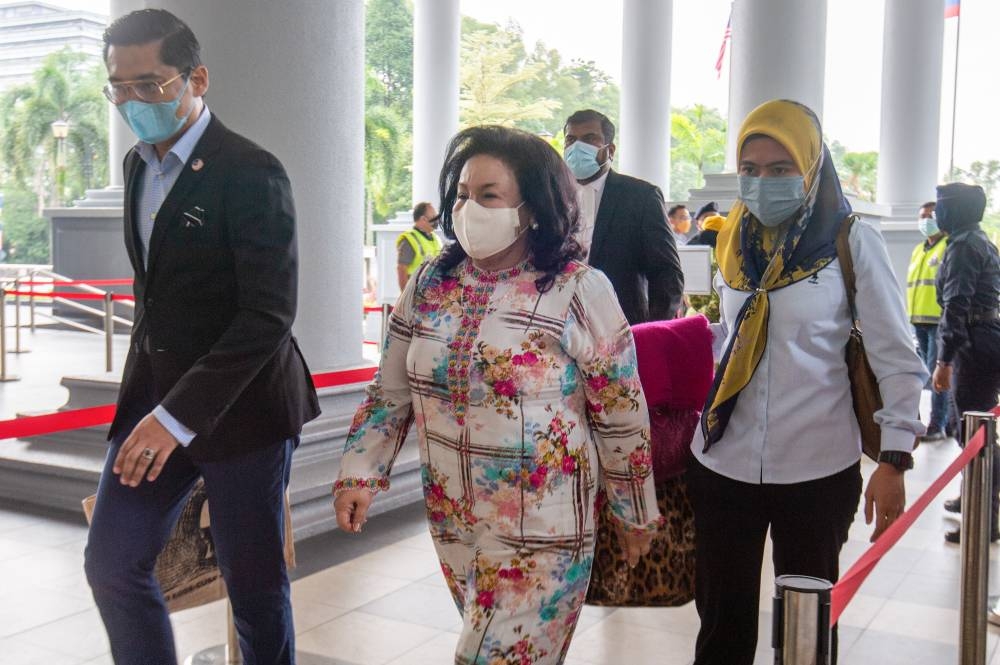SEPTEMBER 7 — Datin Seri Rosmah Mansor’s record fine of RM970 million after being convicted of all charges in her corruption trial involving a RM1.25 billion solar hybrid energy project for 369 Sarawak schools has been commented on by her lawyers as “unprecedented and the largest in the Malaysian legal history.”
All criminal trials shall be conducted in accordance with the provisions of the Criminal Procedure Code (CPC). For trials before the High Court, Sections 178 to 183 apply. Sentencing process takes place after the conclusion of a trial — that is, upon the conviction of an accused person.

Section 182A provides for the procedure at the conclusion of a criminal trial. If the court finds that the prosecution has proved its case beyond reasonable doubt, the court shall find the accused guilty and he may be convicted thereon — Section 182A(2).
The subsequent provision, Section 183, is notable in that it expressly provides that “if the accused is convicted, the court shall pass sentence according to law.” A “sentence according to law” means that the sentence must not only be within the ambit of the punishable section, but it must also be assessed and passed in accordance with established judicial principles.
Clearly, sentencing is the final process in a criminal trial. A sentence is a final order disposing of a criminal case in court.
It involves punishment, which is meted out by court to punish offenders. Those who are guilty will receive the prescribed punishment for their crime.
There is no provision in the CPC for a plea in mitigation in High Court trials. Nevertheless, as a matter of fact, in practise it is quite common to allow a plea in mitigation before the court imposes sentence.
After the accused has submitted the mitigation plea, the prosecution will submit the aggravating factors for the purpose of pressing for a heavy sentence. (See the judgment of Chief Judge of Malaya Azahar Mohamed in Letitia Bosman v Public Prosecutor and other appeals (No 1) [2020]).
In passing sentence, the court takes into consideration the mitigating and aggravating factors in order to ensure that the sentence is in accordance with the law. (See the judgment of High Court judge Azmi (as he then was) in PP v Jafa Bin Daud [1981])
Accordingly, for an offence under Section 16 (Offence of accepting gratification) of the Malaysian Anti-Corruption Commission (MACC) Act 2009 (Act 694), the penalty is provided under Section 24(1) of Act 694. Upon conviction, the accused person shall be liable to: (a) imprisonment for a term not exceeding 20 years; and (b) a fine of not less than five times the sum or value of the gratification which is the subject matter of the offence or RM10,000, whichever is the higher.
The court may direct that the accused person be imprisoned in default of payment of fine. Where the maximum term of imprisonment exceeds two years, the period of imprisonment on default is half the maximum term of imprisonment. This is expressly provided in Section 283(1)©(i) of the CPC.
Rosmah’s sentence of 10 years imprisonment for each conviction is clearly half of the maximum term of imprisonment (20 years). The sentences are to run concurrently as the offences committed are intimately connected with each other.
The fine of RM970 million is five times the sum of the gratification. The breakdown is given in the judgement of the court as follows:

The default term of imprisonment is half (10 years) of the maximum term of imprisonment.
The sentence, respectfully, is according to law.
* This is the personal opinion of the writer or organisation and does not necessarily represent the views of Malay Mail.





















